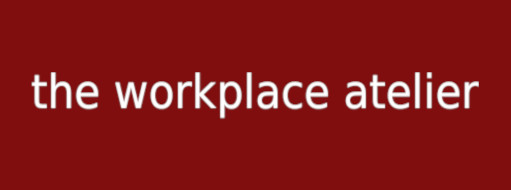This interview was published in the Winter 2020 edition of MAG on “Diversity and Inclusion” # GEMAlumni, the Alumni Magazine at Grenoble Ecole de Management.
After a wide-range of corporate experiences, Neha Chatwani, now shares her expertise on agile leadership and change management “bricolage”. Diversity has come to play an essential role in her vision of the future of business.
Diversity is a la mode in the business world but its meaning is often a bit hazy. Could you share your perspective on the question?
N.C.: Despite a growing number of diversity initiatives, their impact is coming under fire. Speak to an employee in the break room, and you’ll often hear that the reality is bleaker. To overcome this, we have to see that diversity is about understanding our differences and learning to integrate them for the collective good. It’s not about putting people into categories in order to check boxes when you fill a room.
That being said, I respect the need to first get everyone in the room if you want to have an open, inclusive conversation. But that’s just the first step, many companies are only starting to explore. I focus on agility, bricolage and innovation, and this approach highlights that we miss out on leveraging so much knowledge if we don’t hear from everyone. Each of us represents a diverse background and experience. Going forward, companies and society need to recognize this individuality and understand how we can all benefit from it.
How can companies go beyond diversity as a checkbox initiative?
N.C.: The business world varies enormously so it depends on geography and sector. In some places, we’re still talking about gender as man/woman while other places have realized that gender is a complex, plural issue. If we continue on this path, the number of check boxes and categories will simply grow indefinitely. Companies that want to go further have to focus on two factors: inclusive leadership and raising awareness. We have to be brave and open enough to say that we can never be perfectly diverse. The topic will always be on the table. The key is how does one create a continuous discussion for iterative learning.
What role does HR play in this change?
N.C.: It’s a very traditional approach to shift such issues to HR, and then sometimes, forget about them… Instead, diversity has to be part of an organization’s DNA. People think diversity works better in large organizations that spend money on it. But it’s not something you simply throw money at. I’ve been surprised to see many medium-sized companies, especially family-owned businesses, demonstrate real changes. The key to this success was inclusive leadership, how leaders embodied and participated in the change. Leaders have to tolerate ambiguity and be brave enough to say they don’t always have the solution. While HR can be an enabler, my vision is to see diversity as an integrated part of any organization’s foundation. The truth is that the success of companies, their ability to innovate and evolve, is fundamentally tied to diversity. This makes it a relevant strategic issue for everyone in an organization.
And why does awareness play such a crucial role?
N.C.: Recruitment offers an easy example of our unconscious bias. As we naturally appreciate people who are similar to us, we hire someone with similar values, appearances or other characteristics. When a company offers a workshop for recruiters to understand this bias, the goal is to raise awareness so that the company doesn’t miss out on great talent because of a bias. While such workshops can be beneficial, truly developing our awareness requires a long-term commitment to discussion and reflection. There’s no magic potion for diversity. It requires a level of awareness that goes beyond the business environment and we have to develop it much earlier on in school, at home and in society. It’s a pity we’re unable to leverage the wealth that diversity truly offers us. As the world becomes more complex, it’s an issue we have to address urgently.
There’s a rising tendency to speak about inclusion instead of diversity. What’s the difference?
N.C.: Diversity is a word we use to first recognize differences, and second, engage with them. Inclusion is about identifying what we have in common and going from there. We’re definitely moving from diversity towards inclusion. We’re moving from obvious differences like race and gender to a larger discussion about how to work, live and realize ourselves within society. Career and life plans used to be a bit more structured. With remote work, global nomads, digitalization, there’s a larger issue at stake, especially for younger generations. You could say that inclusion is a wider discussion about accepting our individuality within the collective, and diversity is an important topic within inclusion.

